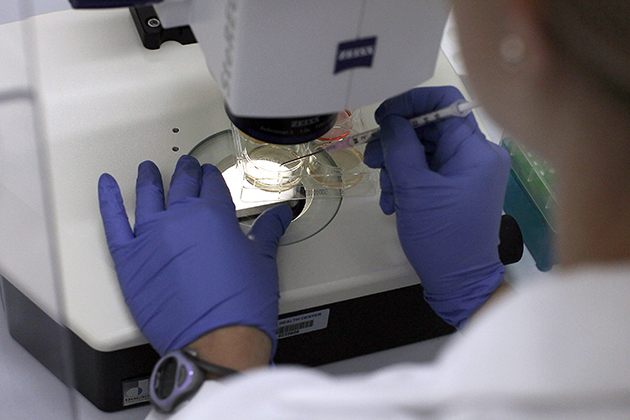
The University of Connecticut recently signed an agreement with a global supplier of biological research tools to market stem cells developed here to investigators studying genetic disorders around the world.
The partnership with KeraFAST will ease the way for other institutions to obtain the cell lines, resulting in more widespread use in the research community, according to Marc Lalande, executive director of Genomics and Personalized Medicine Programs at UConn, and director for both the UConn Stem Cell Institute and the Institute for Systems Genomics.
KeraFAST offers an array of biological materials and scientific tools to academic, government, and industry research laboratories worldwide. The company handles requests between institutions and speeds up the licensing process. UConn’s stem cell lines are the first the company is marketing, says Lalande.
Already, a number of prominent institutions, such as the University of Cambridge, the National Cancer Institute, the Salk Institute and the University of California-Davis, have requested the UConn stem cells for research and drug discovery.
“The potential for producing targeted therapies from stem cells to treat disease and repair or regenerate tissues and organs defines the future of personalized medicine,” Lalande says.
The two UConn stem cell lines, created in 2009 by researchers in the Department of Genetics and Developmental Biology, were generated from skin cells taken from patients with deletions of sections of chromosome 15 who develop Angelman Syndrome, and Prader-Willi Syndrome, two relatively rare, neurogenetic disorders.
The agreement with KeraFAST, says Lalande, is “a testament that cell lines developed by our team are a valuable research tool for biomedical scientists around the world to test new hypotheses and compare findings in standardized stem cell models for drug discovery and other applications.”
Researchers use stem cells to learn how different patients might respond to new drugs in the early stages of development.
Says Lalande, “The aim is to make UConn’s lines available to broaden the research base into more common disorders such as autism and schizophrenia.”


